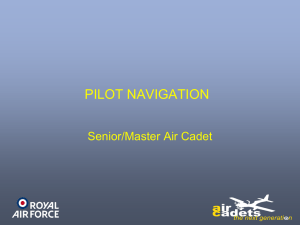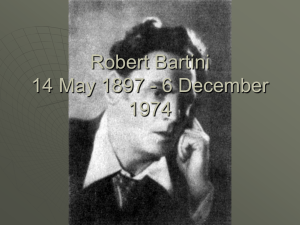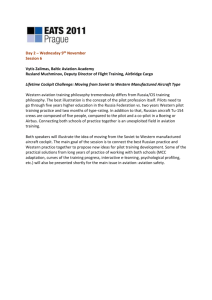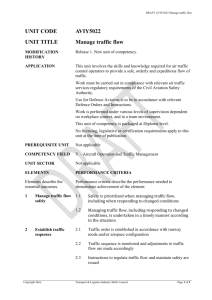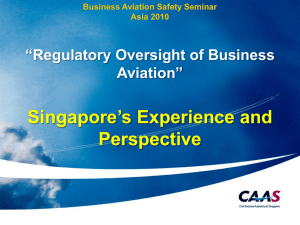Check against delivery Statement of Minister for Transport, Tourism
advertisement
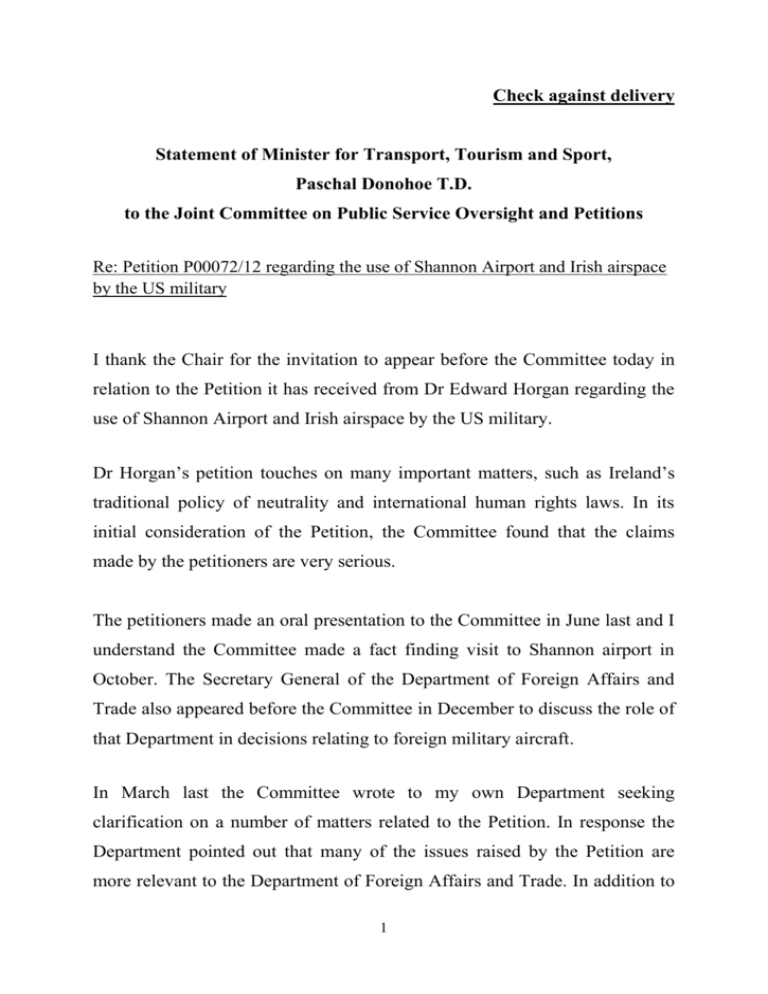
Check against delivery Statement of Minister for Transport, Tourism and Sport, Paschal Donohoe T.D. to the Joint Committee on Public Service Oversight and Petitions Re: Petition P00072/12 regarding the use of Shannon Airport and Irish airspace by the US military I thank the Chair for the invitation to appear before the Committee today in relation to the Petition it has received from Dr Edward Horgan regarding the use of Shannon Airport and Irish airspace by the US military. Dr Horgan’s petition touches on many important matters, such as Ireland’s traditional policy of neutrality and international human rights laws. In its initial consideration of the Petition, the Committee found that the claims made by the petitioners are very serious. The petitioners made an oral presentation to the Committee in June last and I understand the Committee made a fact finding visit to Shannon airport in October. The Secretary General of the Department of Foreign Affairs and Trade also appeared before the Committee in December to discuss the role of that Department in decisions relating to foreign military aircraft. In March last the Committee wrote to my own Department seeking clarification on a number of matters related to the Petition. In response the Department pointed out that many of the issues raised by the Petition are more relevant to the Department of Foreign Affairs and Trade. In addition to 1 its appearance before the Committee in December, the Department of Foreign Affairs and Trade also addressed these issues in some detail in its written responses to the Committee in December 2013 and March 2014. In advance of my appearance today, my Department has also provided the Committee with a comprehensive briefing note, which updates and elaborates on the information provided in the Department’s previous letter. Before addressing the matters that do fall within my remit, I think it is useful to set out the historical context. The transit of US military through Irish airspace and airports is a longstanding practice, which began shortly after the Second World War. Successive Irish Governments have maintained this practice and Ireland has never withdrawn or suspended these facilities. Similarly, successive Governments have deemed this to be compatible with Ireland’s traditional policy of military neutrality, which is characterised by non-participation in military alliances. Role of the Minister I should make it clear at the outset that as Minister for Transport, Tourism and Sport my functions in relation to the use of Shannon Airport and Irish airspace by the US military are limited. The relevant functions that I do have are outlined in detail in the briefing note provided to the Committee. The issues that are of most concern to the petitioners fall outside the remit of my Department. Questions relating to Irish foreign policy, Ireland’s neutrality, alleged extraordinary rendition, the role of the Garda Siochana etc. are not matters on which I am able to comment on in any detail. Similarly I have no role in relation to flights by military or state aircraft through Irish 2 airspace or landing at Irish airports. Such flights require the permission of the Minister for Foreign Affairs and Trade under the Air Navigation (Foreign Military Aircraft) Order, 1952. A clear distinction is made in both international and national law between military aviation and civil aviation. I am responsible for matters relating to Irish civil aviation legislation and policy. The 1944 Chicago Convention is the main international treaty governing the operation of civil aviation. Article 3 states that the Convention is not applicable to state aircraft, being aircraft used in military, customs or police services. The Convention set up the International Civil Aviation Organisation, a specialised agency of the UN. Ireland was a founding signatory of the Convention, has fully ratified the Convention and is an active participant in the on-going work of ICAO. Civil Aviation Safety and Security At the core of civil aviation law at international, EU and national level is the safety and security of aircraft and the persons on board aircraft. It is the responsibility of my Department and the Irish Aviation Authority to ensure that civil aviation using Irish airspace does so in as safe and secure a manner as possible. For good reason civil aviation is one of the most regulated industries in the world. A comprehensive legal framework at global, EU and national levels applies to all civil aviation using Irish air space, irrespective of what or who is on board such aircraft. Civil aircraft have been used by the defence forces of many countries for various purposes for many years. For instance the Irish defence forces would 3 often charter civil aircraft to deploy personnel on UN peacekeeping missions abroad. Civil aviation law applies to aircraft being used by the military in the same way as it applies to other civil aircraft. The Petition focuses on the use of Shannon Airport and Irish airspace by the US military in particular. Like all other civil aircraft, when such aircraft are used by the US military in Irish airspace, my primary role is to ensure that these aircraft are operated safely and securely, in accordance with applicable laws. Article 35 of the Chicago Convention states that no civil aircraft may carry munitions of war over a state without that state’s permission. This requirement is ratified in Irish law in the Air Navigation (Carriage of Munitions of War, Weapons and Dangerous Goods) Order, 1973, as amended. Under the 1973 Order the carriage of weapons and munitions of war is prohibited in any civil aircraft in Irish airspace and on board any Irish registered aircraft, unless an exemption is granted by the Minister for Transport, Tourism and Sport. The Chicago Convention and the 1973 Order apply to munitions of war only, not to military personnel that may be on board civil aircraft. Detailed statistics regarding exemptions issued under the 1973 Order are set out in the briefing provided to the Committee. In 2014 584 exemptions were issued, a significant decrease from a peak of 1495 exemptions issued in 2007 the period 2005 to 2011 saw the highest numbers of exemptions issued. The vast majority of the exemptions granted under the Order relate to munitions of war belonging to the US military - this is more a function of geography than policy. Since 2011 there has been a consistent reduction in exemptions due to the withdrawal of US troops from Iraq and and the drawdown of US troops from Afghanistan. 4 In many cases for these flights operated on behalf of the US military for which exemptions are issued, the most direct flight path between points in North America and points in continental Europe passes through Irish airspace. The US Department of Defence has used civil aircraft to transport troops and munitions of war between the US and Europe since the Second World War. In accordance with the provisions of the 1973 Order, my Department operates a procedure under which airlines wishing to carry weapons or munitions through Irish airspace or airports must apply for each individual flight at least 48 hours in advance. My Department seeks the views of the Department of Foreign Affairs and Trade in relation to foreign policy issues and the Department of Justice and Equality in relation to security issues. The Irish Aviation Authority is consulted in relation to aviation safety issues, but only on applications involving munitions that are also categorised as dangerous goods. If any of these bodies objects, an exemption will generally not be granted. A copy of the application is also sent to the Department of Defence for information. US Military Use of Shannon and Irish Airspace As I have stated the vast majority of exemptions under the 1973 Order are issued to US airlines chartered by the US Department of Defence transporting US troops to various destinations around the globe. Usual international practice is that such troops travel with their personal weapons. The weapons are unloaded and no ammunition is on board the flights. 5 Because of the unloaded weapons on board, these flights require an exemption under the 1973 Order to enter Irish airspace. Roughly half of these flights land at Shannon for refuelling purposes, while the rest overfly Ireland. The choice of routing for these flights is a matter for the airlines themselves. Around 90% of the exemptions issued are for these civil charters carrying troops, with the personal unloaded weapons of the troops on board. For obvious safety and security reasons there are very strict civil aviation rules regarding the carriage of any dangerous goods on aircraft. Unloaded firearms, however, are not categorised as dangerous goods. Nevertheless any civil aircraft transporting munitions of war in Irish airspace, irrespective of whether or not they are categorised as dangerous goods, requires an exemption. In addition, while the dangerous goods rules do not apply to the carriage of unloaded weapons, there are other rules regarding the carriage of unloaded weapons in aircraft to ensure the safety and security of the aircraft. Around 10% of the exemptions are for aircraft carrying munitions of war other than unloaded weapons, such as ammunition and explosives. These are usually transported on cargo-only aircraft and the aircraft transporting such munitions do not usually land in Ireland. Such munitions are of course classified as dangerous goods and are subject to the same strict rules that apply to the many other types of dangerous goods that are transported by air every day. 6 Conclusion I hope what I have said today, together with the briefing note provided to the Committee, have clarified the role I and my Department play in the issues raised by this Petition. I am happy to take any questions the Committee may have. Thank you. 7
